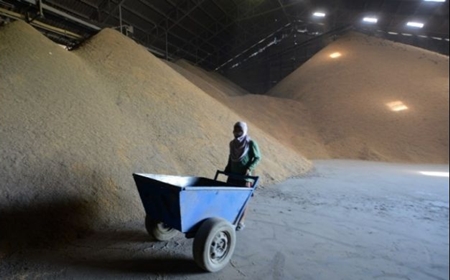BANGKOK, Nov 22 – Thailand’s leading economist Ammar Siamwalla today described the agreement on rice purchases signed Wednesday by Thailand and China as a “hollow document suitable for putting in a frame to be hung in the minister’s office.”
His sarcastic remark came on the heels of the government’s highly-publicised memorandum of understanding between Bangkok and Beijing during the visit of outgoing Chinese Prime Minister Wen Jiabao to Thailand.

Dr Ammar, an expert on Thai rice and agricultural economics, said the latest Thai-Chinese agreement is meaningless for the Thai government in its rice management policy.
The government has never planned to release its rice stock from the very beginning despite the Finance Ministry’s repeated requests for a concrete rice distribution plan, the Thailand Development and Research Institute (TDRI) economist said.
The volume of rice to be pledged with the government this year will rise from 8.8 million tonnes to 11.11 million tonnes while the government has recently added more tonnage, Dr Ammar said. The total volume of rice in the pledging scheme will be 13.31 million tonnes.
The cash-exhausted Bank of Agriculture and Agricultural Cooperatives (BAAC) has asked the Finance Ministry to guarantee additional loans of Bt120 billion to Bt161 billion to pledge rice in the new harvest but the ministry disagreed, according to the TDRI academic.
The BAAC has resorted to seek loans without the Finance Ministry’s guaranty which resulted in higher interest, he said, warning that the BAAC will face sporadic liquidity problems while rice pledging expense will be higher.
It is the first time in Thailand’s experience that the rice marketing mechanism has been completely destroyed given the government’s policy to buy every single grain of rice and monopolise the paddy and rice markets and rice milling business, he said.
Another TDRI expert, Niphon Puapongsakorn, warned that the BAAC’s liquidity will be severely tested by the government’s pledging of rice from the second harvest.




